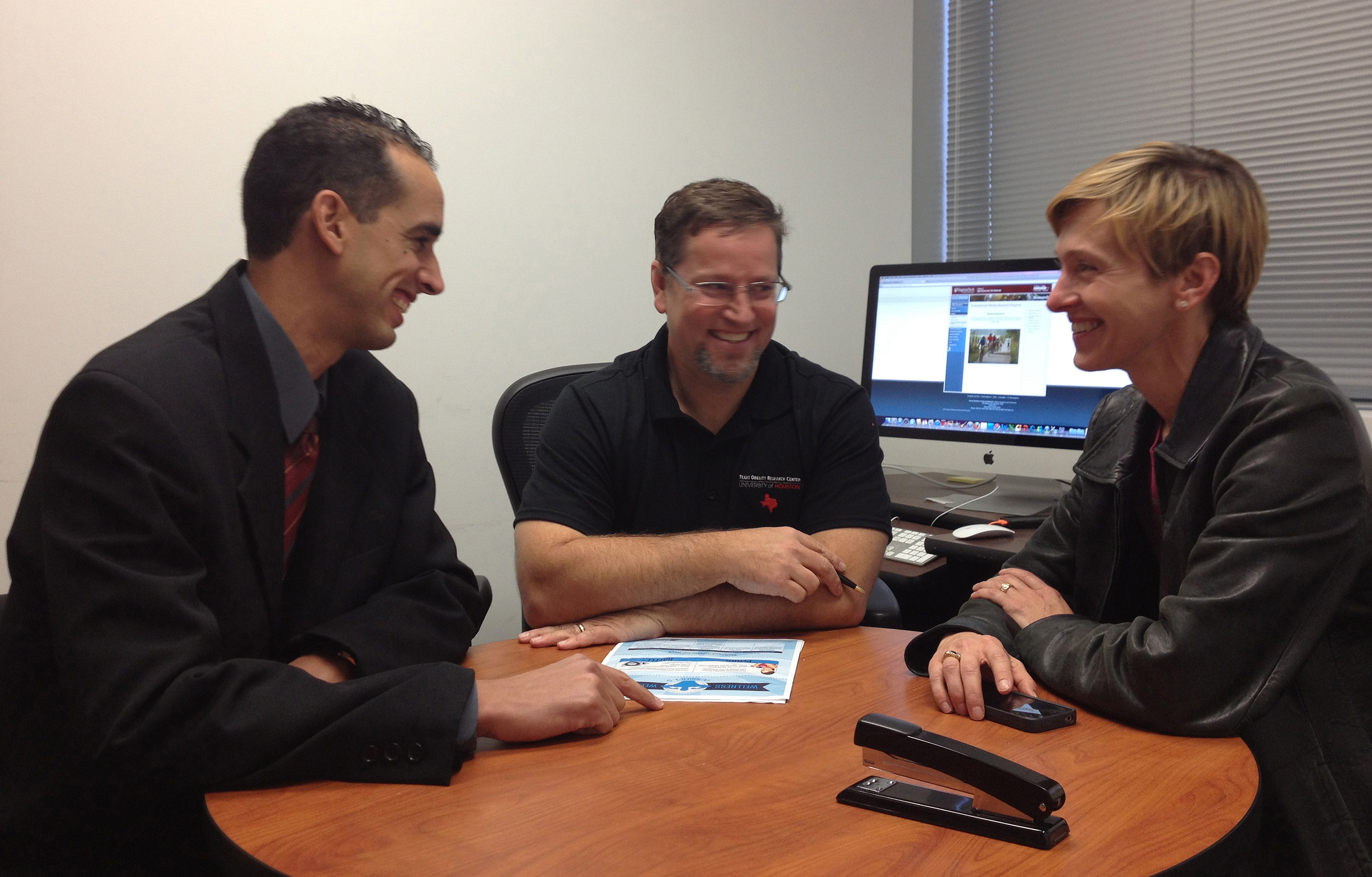New Fralin center furthers multidisciplinary obesity research

The Fralin Translational Obesity Research Center at Virginia Tech has been officially approved by the Office of the Vice President for Research as a center under the Fralin Life Science Institute.
Serving as co-directors are Kevin Davy and Paul Estabrooks, both professors of human nutrition, foods, and exercise, in the College of Agriculture and Life Sciences. Estabrooks is also a professor of Family Medicine in the Virginia Tech Carilion School of Medicine.
In line with the land-grant mission of Virginia Tech, the center’s aim is to improve health and quality of life in the Commonwealth of Virginia and the nation. More than one-third of adults in the United States are obese, according to the Centers for Disease Control and Prevention, and obesity is often related to causes of death, such as heart disease, stroke, and some types of cancer.
The center’s approach is unique; scientists from a variety of backgrounds including human nutrition, psychology, cancer biology, economics, and pediatrics will receive support to explore collaborative, translational projects with the goal of obtaining large-scale external funding to support obesity research.
“The complexity of obesity expands beyond the simple etiology of energy imbalance to include genomic, molecular, cellular, and organic components that interact with individual preferences, family and community contexts, work life, economics, and the local, state, and national policy landscape,” Davy said.
The center was developed around a number of successful collaborative teams and includes approximately 17 affiliated Virginia Tech and Carilion Clinic investigators. Some examples include center members Brenda Davy, associate professor of human nutrition, foods, and exercise and Richard Winett, professor of psychology, who are completing a study that investigates lifestyle strategies for diabetes prevention while focusing on the role of resistance training.
Similarly, Fabio Almeida, assistant professor of human nutrition, foods, and exercise was recently funded to examine interactive technology strategies to prevent diabetes with Wen You, assistant professor of agricultural and applied economics, Richard Seidel, associate professor of psychiatry at the Virginia Tech Carilion School of Medicine, Estabrooks, and Brenda Davy.
Another example of the team research that will be ongoing in the center is a study by Matthew Hulver, associate professor of human nutrition, foods, and exercise, in collaboration with Kevin Davy and Madlyn Frisard, assistant professor of human nutrition, foods, and exercise that studies the role of pro-inflammatory pathways in maladaptation to metabolic stress (changes in diet, exercise) in skeletal muscles. Muscle cells become inflamed as a result of over-eating or lack of physical activity.
“The goal of our center is to influence public health through our work, and the solution to societal issues related to obesity prevention and treatment is more than simply having a range of faculty across a lot of disciplines working on obesity research from their own perspective," said Estabrooks. "What is needed is an interdisciplinary translational strategy to design effective and sustainable obesity prevention and treatment strategies that can reach those people who need them most.”
The center is also partnered with the Interdisciplinary Graduate Education Program, administered through the Graduate School at Virginia Tech, which supports interdisciplinary graduate student research.
“We are really pleased to be launching this effort and hope that it is going to help spearhead our efforts in obesity research at Virginia Tech,” said Dennis Dean, director of life sciences at Virginia Tech.




